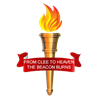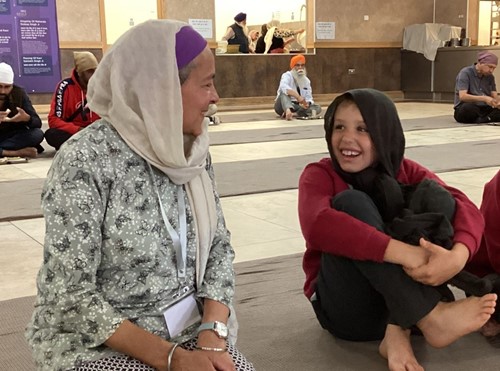Exploring Spirituality Curriculum Statement
Intent
At Clee Hill Community Academy we believe that Religious Education should be referred to as ‘Exploring Spirituality’ as this summarises our philosophy of self-exploration whilst preparing pupils for life in an increasing multi-cultural society. This is achieved by encouraging them to explore and respond to these aspects of spirituality and religion and draw upon their own experiences.
Our curriculum explores big questions about life, to find out what people believe and what difference this makes to how they live, so that pupils can make sense of religion, reflecting on their own ideas and ways of living.
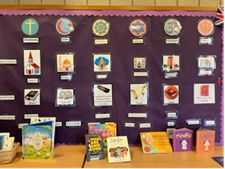
Due to our location, in rural South Shropshire, pupils could have limited exposure to other religions, cultures, or languages. Through exploring spirituality lessons and assemblies, children learn to be respectful of both their own and other people's beliefs & cultures.
Our aims and objectives in Exploring Spirituality are to:
• develop pupils’ knowledge and understanding of religion through exploration of the beliefs and practices of the principal world faiths represented in locally (Shropshire), nationally (Great Britain) and internationally;
• enable children to reflect on what it means to have a faith whilst developing their own spiritual knowledge and understanding;
• address fundamental questions concerning the meaning of life and existence;
• prompt children to consider their responsibilities to themselves and to others, and to explore how they might contribute to their communities and to wider society;
• encourage empathy, generosity and compassion;
• develop respect, sensitivity, tolerance and consideration for the beliefs and traditions of others;
• combat prejudice and negative discrimination;
• develop a sense of awe, wonder and mystery.
• nurture children’s respect for different faiths and cultures as part of our British values.
Implementation
Our curriculum follows a scheme of work, written by RE today, which works the RE Shropshire Agreed Syllabus/SACRE and is supported by documentation by NATRE. The curriculum was designed to explore big questions about life and find out what people believe and what difference this makes to how they live, so that pupils can make sense of religion, reflecting on their own ideas and ways of living.
Types of knowledge in RE
There are three types of knowledge in RE.
- Substantive knowledge: knowledge about various religious and non-religious traditions.
- Ways of knowing: 'how to know' about religious and non-religious traditions
- Personal knowledge: building awareness of our own presuppositions and values about the religious and non-religious traditions studied.
Substantive knowledge
Substantive content includes:
-ways people express religion/ non-religion in their lives
-knowledge of artefacts and texts
-concepts and vocabulary relating to faith eg- dharma, incarnation, ritual, prayer, sacred
(Some concepts are common in multiple religions eg- sacrifice and some concepts are specific to a religious tradition eg- incarnation).
'Ways of Knowing' in RE
'Ways of Knowing' in RE is about being scholarly in the way substantive content and concepts are approached. It is about different ways pupils learn how it is possible to explore substantive knowledge.
'Ways of Knowing' in RE can be simplified into disciplines; theology, philosophy and human/ social sciences. How questions are phrased within a unit of work will alter how it is approached, eg- 'Why do different Hindu stories talk about light?' or 'How does a festival of light bring Hindus together?' Each question enables pupils to consider the question through different disciplines.
Personal knowledge
When pupils study RE content they do it from their own 'viewpoint'. This is influenced by their own values, prior experiences and own sense of identity. Pupils need to be aware of their 'viewpoint' to enable them to be aware of the assumptions they may bring to discussions.
Content relating to meaning and purpose, human nature, justice in society, values, community and self-fulfilment all have potential to develop pupil's personal knowledge.
Our curriculum effectively interplays between these categories of knowledge - and are not taught discretely.
Our scheme of work covers all 6 major religions, but as a school, we focus predominately on Christianity and Judaism in KS1 and Christianity, Judaism and Hinduism in Key Stage 2.
Exploring Spirituality in the EYFS
Children in the Early Years explore spirituality and worldviews through special people, books, times, places and objects and by visiting places of worship. They listen to and talk about stories from different religions and are introduced to specialist words. Children are encouraged to use their senses in exploring religious beliefs, practices and forms of expression. They reflect upon their own feelings and experiences. They use their imagination and curiosity to develop their appreciation and wonder of the world in which they live.
RE sits firmly in PSED within the EYFS framework. This enables children to develop a positive sense of themselves and others and to learn how to form positive and respectful relationships. Children begin to understand and value the differences between individuals and groups within their immediate community. They will have the opportunity to develop their emerging moral and cultural awareness.
Early Learning Goals
Self-Regulation ELG Children at the expected level of development will:
- Show an understanding of their own feelings and those of others, and begin to regulate their behaviour accordingly
Managing Self ELG Children at the expected level of development will:
- Explain the reasons for rules, know right from wrong and try to behave accordingly;
Building Relationships ELG Children at the expected level of development will:
- Show sensitivity to their own and to others’ needs.
Understanding the World
People Culture and Communities ELG Children at the expected level of development will:
- Describe their immediate environment using knowledge from observation, discussion, stories, non-fiction texts, and maps;
- Know some similarities and differences between different religious and cultural communities in this country, drawing on their experiences and what has been read in class;
- Explain some similarities and differences between life in this country and life in other countries, drawing on knowledge from stories, non-fiction texts and – when appropriate – maps.
Supporting pupils with additional needs
Our Exploring Spirituality Curriculum meets the specific needs of individuals and groups of pupils through its very nature of encouraging children to express their views and opinions in different ways. We use Art, Drama, Stories and play to support learning and teachers will modify, as necessary, to provide all pupils with relevant and appropriately challenging work.
Assessment Opportunities
At Clee Hill Community Academy evidence is collected from whole class Exploring Spirituality books, teachers’ planning, wall displays and photographic records which show implementation of coverage. There is no expectation that written work should be on a regular basis or be kept in books. Our floor cooks encourage pupils to discuss, debate, think and explore both the spirituality of others and their own spirituality.
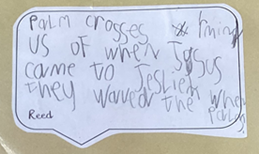
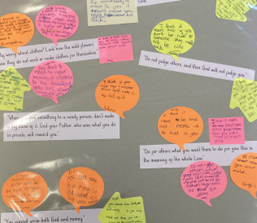
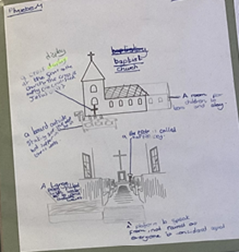
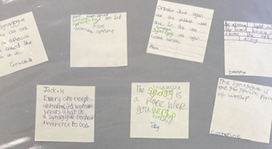
Impact
Our Exploring Spirituality Curriculum prepares pupils by encouraging them to:
- consider their own thoughts and opinions on the challenging questions of the meaning and purpose of life, beliefs about God, their own self and the nature of reality, issues of right and wrong and what it means to be human;
- understand the influence of religion on individuals, families, communities and cultures
- learn from different religions, beliefs, values and traditions while exploring questions of meaning and their own beliefs;
- learn about religious and ethical teaching, enabling them to make reasoned and informed responses to religious, moral and social issues;
- develop their sense of identity and belonging in the world, preparing them for life as citizens in a multi-cultural global society;
- develop respect for and sensitivity to others, in particular those whose faiths and beliefs are different from their own.
-
Enrichment Opportunities
At Clee Hill Community Academy, we recognise the importance of celebrating all faiths and to hear first-hand experiences from a wide range of people talking about their faith. As well as working closely with local churches and ensuring children are given the opportunity to visit the church regularly, both for services and as part of their RE lessons, we also welcome visitors from all faiths. In doing this, we strive to create an atmosphere of respect and understanding so that all individuals are able to share their own experiences freely and pupils are immersed first hand in other religious experiences.
Christianity
St Peter’s & St John's
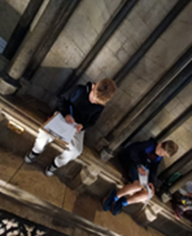
Currently, St Peter’s church is undergoing repairs and the school are unable to use this facility. St John’s church is being used as an alternative place of worship. The school are currently part of a local study group at St John’s Church, as part of a National Lottery Funded project. Work from recent visits can be found on display at the church from recent visits. Class 1 and 2 make regular visits to St Johns to experience a place of worship and learn more about the Christian faith.
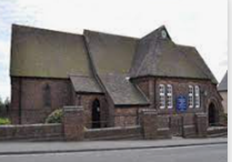
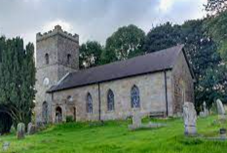
York Minster
As part of the Year 5 and 6 residential to York, the children have the opportunity to explore the history of the York Minster and make comparisons with our local church.
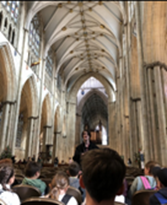
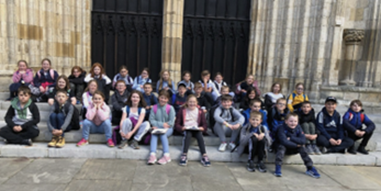
Open the Book
Open the book run weekly assemblies, every Tuesday, in the school where the children act out Christian stories and reflect on what the Bible stories teach us about how we should live our lives.
Hinduism
Shri Venkateswara (Balaji) Temple, Tividale
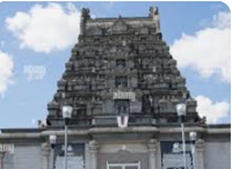 In Class 3, as part of their focus on the Hindu faith, the children visit the Balaji temple in Tividale. This incredible experience includes a guided of the temple and an opportunity to learn more about the Hindu faith first hand.
In Class 3, as part of their focus on the Hindu faith, the children visit the Balaji temple in Tividale. This incredible experience includes a guided of the temple and an opportunity to learn more about the Hindu faith first hand.
Hinduism Education Services Workshop
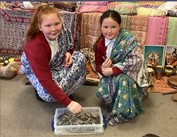
Class 3 also have the opportunity to re-enact Hindu stories as part of the Hinduism Education Services Workshop. The children learn all about the different Hindu Gods and Goddesses and stories related to them. They dress as a Hindu, learn how to prepare a shrine, practice meditation and discover more about the lives of Hindus in Britain.

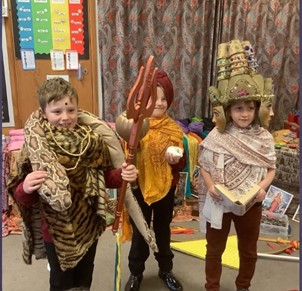
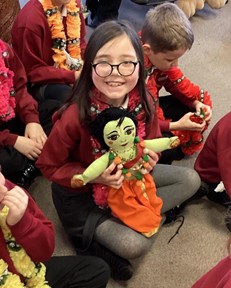
Judaism
Singers Hill Synagogue, Birmingham
In Class 4, the children have the opportunity to visit Singers Hill Synagogue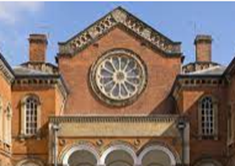 in Birmingham and have a first-hand experience of a working synagogue. The tour of the synagogue includes a tailored programme for the pupils, learning more about the Jewish faith and Jewish customs.
in Birmingham and have a first-hand experience of a working synagogue. The tour of the synagogue includes a tailored programme for the pupils, learning more about the Jewish faith and Jewish customs.
Islam
The Islamic Exhibition, Birmingham
Class 5’s visit to the Muslim Experience is an opportunity to discuss the similarities with Islam and other major faiths and to focus on the history of Islam, the 5 pillars, family life and Islam and Science.
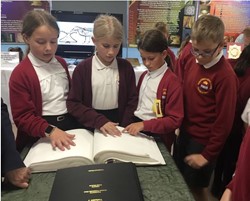
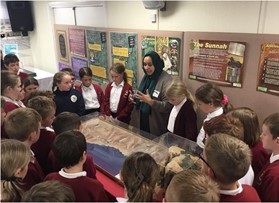
Craven Arms Islamic Centre
On alternate years, Class 5 visit a Mosque in Craven Arms and complete a programme of learning with the local Imam.

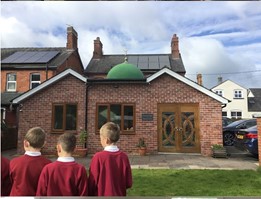
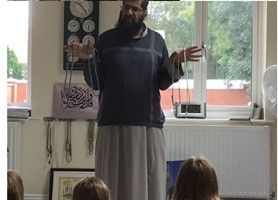
Sikhism
Sikh Education workshop
In Class 4, the Sikh Education Workshop supports our curriculum by comparing Sikh and Christian festivals. This interactive workshop allows opportunities for the children to learn more about the life of Sikhs in Britain today.
Guru Nanak Gurdwara, Smethwick
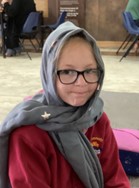 On alternative years, Class 4 have the opportunity to visit a Gurdwara and discover more
On alternative years, Class 4 have the opportunity to visit a Gurdwara and discover more about being part of the Sikh community including sampling Langar in the community kitchen.
about being part of the Sikh community including sampling Langar in the community kitchen.
